-Today’s blog is from the book Pause: The Secret to a Better Life, One Word at a Time. Pick up your copy on Amazon or HERE.
These actions are disciplines not meant to improve our worth and value. They are to guide our search for love, our search for ourselves, our search for God, our search for realities of life.
Here are specific ways to apply that search, summarizing a few of our chapters to revisit and reinforce them, and adding a few new words of wonder.
Journal—Instead of holding your feelings inside, release them. Instead of releasing those emotions in unhealthy ways, keep a journal. Write about your worry, your fear, your frustration, yourself. Write prayers, songs, and hopes. By releasing, you give yourself room for growth and development without the unneeded baggage.
Listen—Scripture tells us to be quick to hear, slow to speak, and slow to become angry. We have one mouth but two eyes and ears. Let’s hear more and say less. Let’s listen, repeating what we have heard.
Rest—Good nights of sleep. Short naps during our hurried schedules. Hitting pause in our rushed lives. Deep breaths. Think of a Sabbath experience in various times each day. While we rush from duty to duty, let us pause. And be still.
Laugh—Scripture again provides us good instructions: Laughter does good like a medicine. So laugh. Enjoy moments too often rushed through or ignored. Laugh.
Cry—Not only should we laugh, but crying also is good for us. We try to resist any shedding of tears. Why? By crying we let the body do its job and help hurts be released. Crying is not a weakness. It is healing.
Work—Whatever our weakness or disability or struggle, work is our friend. Not just being busy for the sake of improving our self-view. Or for getting more money. But doing work to keep strong whatever portions of our bodies still function.
Confess—Like crying and journaling can release inner hurts, so can confessions. Sometimes, writing the confessions in the journal is enough. But, other times, we need a trusted pastor, priest, counselor, or accountability partner. We need to tell him our mistakes. Not defending ourselves. Just releasing what could hold us back, what could keep us from living with hope.
Forgive—We seek forgiveness from God and others, right? Do we choose to forgive? Let’s not wait until the person who hurt us has apologized. Let’s not expect that person to understand our deep wounds. Let’s choose to let go—choose to forgive—no matter how we feel about it. Forgiveness no longer allows our hurts to control our moods, our decisions, or our opinions.
Learn—When does school end? Never. Life is an ongoing experience of learning. Ask questions. Read books. Listen to podcasts. Online. In bookstores. In libraries. With friends who understand some of your own struggles—learn together. School is our permanent home.
So, just a few tips to guide our search. Let’s give each one a try.
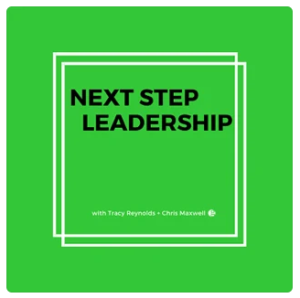
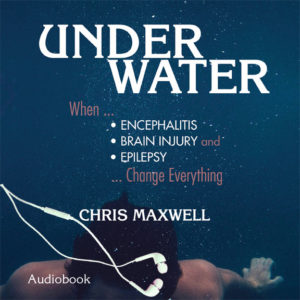


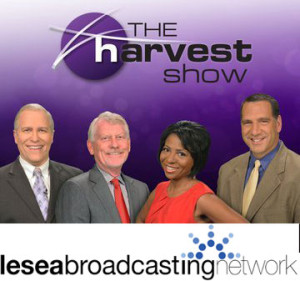
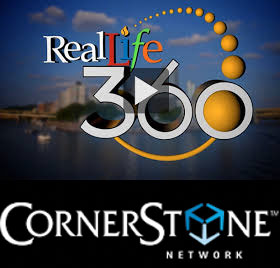
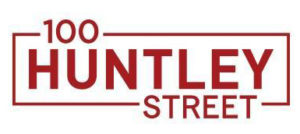



As I read this devotion, I could not help but think about how spiritual disciplines navigate us to God. Spiritual disciplines are a lifestyle of choosing to perceive God in our every action of life. Without spiritual disciplines we neglect to see God. The one spiritual discipline I want to focus most of my time on is listening, because listening is an important value to have within a relationship. How can I understand the one I love, if I do not listen to my loves concerns and desires. In the same way, I need to listen to God’s concerns and desires for my life. God only wishes to grow me as an individual. And yes, I will feel pain here and there, but God only leads me to the pain that benefits me. I choose to trust God’s guidance in my life by listening to Him.
I have been reading this devotion daily and it has truly been a great tool and insight into my spiritual life. In my past I know I have struggled with putting forth the effort to perform spiritual disciplines. It seems that I would not make the time to spend time alone with God. I would often get so overwhelmed with school work or things that had my mind elsewhere that my savior would get pushed to the back burner. These spiritual disciplines are just the starting point on us trying to grow more and more like Christ so that we can be his disciples. How can we expect to tell others about the Father if we do not understand him ourselves? The spiritual discipline that rendered most with my walk right now is rest. I often get overwhelmed school work and other things that I just feel exhausted both physically and mentally. But if I take some time to just rest in the presence of God and let him touch my body, I feel much more revitalized and prepared to take on the world.
There is one topic that stood out to me the most. This particular topic stood out to me, because it is the most difficult for me. “Listening” is the hardest one for me. It is difficult for me to wait on God to respond to me. Conversations are supposed to be two sided, and when I don’t hear God respond right away, I give up. The question I have to ask my self is, “Is he responding?” I think the answer is yes, but maybe I just don’t know how to listen.
When I read this I realized that I never knew realized that Scripture talks about laughter until now.In my own personal life I started confessing to the Lord through writing journal entries which is something I try to do everyday.I really want to focus on crying,listening, and rest throughout the rest of the semester.When I say that I want to focus on crying I simply mean its okay for me to cry and when it comes to listening I need to become a better listener.When it comes to rest I simply mean that I need to take time to rest and not overwork myself.
Listening is hard for me. I tend to talk to much and to fast, and not listen very well. When my friends are talking to me, often I jump in on what they are saying with my advice on how to make everything better, when sometimes all they really need is someone to listen. I definitely need to work on listening more to those around me, and especially listening to God. Sometimes I jump ahead of Him and dive into something he doesn’t want me to do because I didn’t wait and listen for His answer.
For me, the most challenging task out of this list is crying. Kind of odd, being I’m a girl and we supposedly cry at the drop of a hat but not for me. I’m the one who is always joyful, always laughing, & always smiling. Yes, I would agree with that but there are times when you just need a good cry but I don’t allow myself that. I don’t allow myself that slim moment of feeling somewhat “weak.” I’ve definitely been seeking the Lord about this because it is ever present to me that His strength is made perfect in our weakness.
While viewing the lists of disciplines, I feel the most difficult one for me would be forgiveness. I feel that I have been through a lot through my life to only be 20 years old and just looking at the things that I have experienced, there are numerous things I have not deserved. It`s hard for me to find it in my heart to be the bigger person and forgive those who intentionally hurt me in my weakest and youngest moments of life.
For me, crying is the most difficult of these things. I can write, listen, laugh, work. But crying is when I realize that these feelings are real, this life is real, this pain is real, and I am living in it. As someone who grew up doing plays and theater productions, it’s sort of easy to loose touch with the reality of emotions. I just go through the days doing what needs to be done. But it’s so important to step back and understand how we are really feeling, and sometimes that means to release it through tears. Crying is hard, because society says it’s weakness. It’s difficult because it’s something undeniably real. It’s something that’s painful. But it’s also healing, so maybe I should allow it to happen more often, when needed.